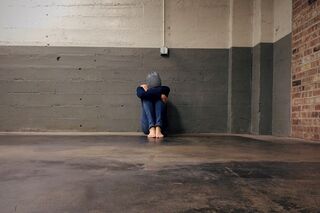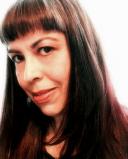Anger
Facing the Full Catastrophe of Brain Injury
Diagnosis doesn't reveal the losses brain injury brings like experience does.
Posted December 17, 2021 Reviewed by Gary Drevitch

Like the pandemic, brain injury recovery isn’t a smooth upward trend of ever-closer return to normal. Instead, improvements give way to setbacks, half-glass-full thinking to sudden moments of coming face-to-face with reality, before entering another period of better health. But one cannot reach full healing without facing the health problem head on, seeing how it manifests under different conditions, and recognizing how it changes you and your life. As the public around the world is discovering, that step of recognizing the complexity of the problem is the most difficult. Brain injury can be brutal when it reveals itself fully to you, as I wrote in this excerpt from my memoir Concussion Is Brain Injury: Treating the Neurons and Me:
June 2005. Anger and irritation. Out of the cut-off emotional centres of my brain, only those two bled through into my consciousness as frontal neurons refused to moderate the neurons deep in my brain. Since my injury, anger and irritation had chained me. The beast of brain injury anger joined forces with moral outrage at the broken bricks of injustice being tossed at my heart. Anger told me of my desperation, desperation my despair’s voice.
From inside my mind’s grey cavern, I looked out to the fresh green of the gardens that all others lived in, their trees sturdy, my father’s soon to turn 70. Flocks of memories flew past me, cawing stories of how I used to plan birthday surprises. I stood to grasp an errant bird that had strayed too close above the heaped-up bricks. He eluded my clutching hand, but I remembered. I struggled on tottering feet toward that garden, to plan, organize, create a gift so stupendous, it would shock and last, it would bring joy and satisfaction at a life loved, lived, lauded.
Lauded.
What gift could laud a man who had re-landscaped nutrition, drove patients to move to Toronto to receive his care of hope, generated invites from all over the world to speak, to teach, to show them a better way to care for patients?
An award.*
An award at my alma mater and the department that brought him and us here to Canada.
My legs bent; my butt landed on the basalt floor of my cavern. Trees in those gardens burst forth pollen in the springtime air, and I stretched my hand out for a touch of that golden productivity. My hand couldn’t exit the craggy walls of my vacuumed mind.
The gardens receded as the walls imprisoned me, scattering my thoughts into disconnected shards. Women outside peered in, babying me, watching their words bounce off my besieged brain. Try, try again.
I. Can. Not. Plan.
I. Can. Not. Organize.
I. Can. Not. Problem. Solve.
I phoned my mum, my siblings, friends of my parents. I phoned the University of Toronto, Faculty of Medicine. I scribbled furiously in my phone notebook what to say, what was said to me, clutching at these words, to remember and plan how to set up an award in Dad’s name. His birthday present. For his seventieth. In August. I had only two months, time for pre-injury Shireen to wrap up an idea she’d have been cogitating on since January. For me, an unknowable entity, an eternity of spinning thought out of baffled uncertainty in between days of rest.
I met with three women. Fund-raisers. Businesswomen. To plan and organize the award in my father’s name. Mum the fourth as my brace and connection to them. Pure happiness as frond tips from the gardens caressed me, guided me to answers, but they slowly left me behind. Mouths moved; talk chattered in my ears; fingers typed at speed on Crackberry-Blackberry; and my hands lay still in my lap, my Palm forgotten, as my eyes flitted from one face to another to the Shih Tzu trotting happily past the restaurant windows to the tiny Blackberry screen, envying, lost, confused.
Head home. Head on kitchen table. Alone. Memories of the fundraising plan our five-woman committee had organized burrowed themselves into my disconnected neurons, taunting me to apprehend them. My Palm, my second brain, offered no help, its blank notes adjuring me for not filling them while we’d conversed and I with horror realized I could not figure out how to find a paper clip in an office.
Five years, five months, and 13 days after my injury, comprehension like a cresting wave splashed into my empty cavern, filled my lungs, drowned my emotions, and flung me like flotsam against the craggy back wall of my detached mind.
Oh. My. God. I. Cannot. Return. To. Work.
How much can one person cry?
* The Dr. KN Jeejeebhoy Award for Excellence in Gastroenterology at the University of Toronto, Faculty of Medicine
Copyright ©2017-2021 Shireen Anne Jeejeebhoy.


